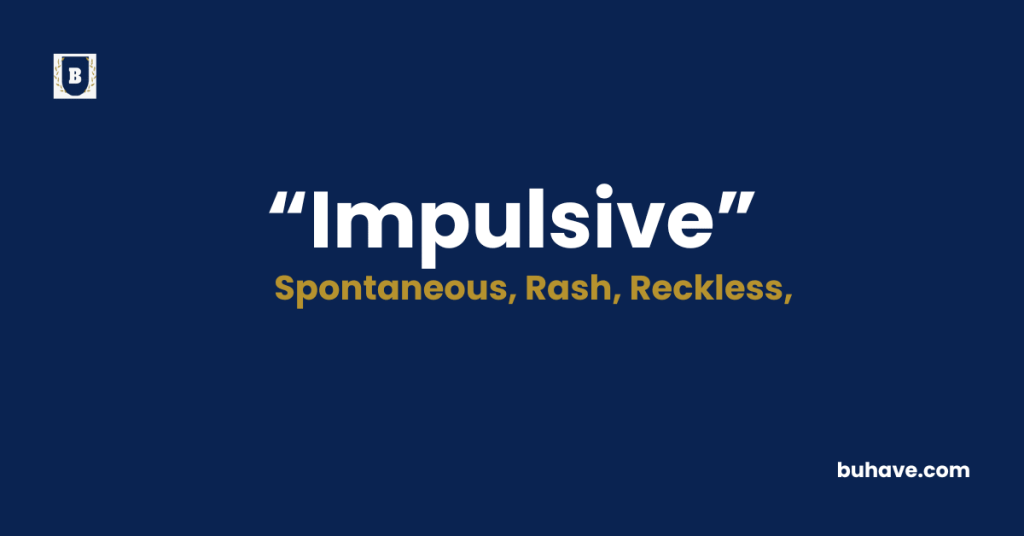The word ‘Impulsive’ (Adjective) describes someone who acts quickly without thinking through the consequences, often driven by sudden emotions or urges. In this guide, you’ll learn the full definition, synonyms, antonyms, etymology, and real-life examples of how to use ‘Impulsive’ correctly in sentences.
Impulsive Explained in Depth
A complete and detailed guide to the word Impulsive including meaning, definition, examples, etymology, synonyms, and antonyms.
Meanings of Impulsive
‘Impulsive’ refers to behavior or decisions that are made suddenly and without careful thought. It often reflects spontaneity or acting based on immediate feelings rather than logic or planning. While impulsiveness can sometimes lead to excitement or creativity, it can also result in poor judgment or regret.
Definition
Impulsive means acting or done without forethought, often on a sudden urge or desire. It suggests a lack of deliberation, where emotions or instincts override rational decision-making. For example, an impulsive purchase might be buying an expensive item you didn’t plan for just because it caught your eye.
Etymology
The word “impulsive” comes from the Latin root “impulsivus,” derived from “impellere,” meaning “to push against” or “to drive forward.” It entered Middle English in the 14th century and has long described actions driven by inner forces or emotions rather than conscious thought.
Example Sentences
- His impulsive nature often got him into trouble.
- The child gave an impulsive answer before thinking.
- Buying that car was an impulsive move I now regret.
- They admired his impulsive creativity, even if it lacked structure.
Impulsive Synonyms
- Spontaneous
- Unplanned
- Reckless
- Rash
- Impetuous
- Unthinking
- Careless
- Emotional
- Instinctive
- Capricious
Impulsive Antonyms
- Deliberate
- Thoughtful
- Planned
- Cautious
- Careful
- Rational
- Calculated
- Judicious
- Intentional
- Wise
FAQs about Impulsive
Here are some frequently asked questions (FAQs) about the word “Impulsive”
1. What does it mean to be impulsive?
It means acting suddenly without thinking things through, often based on emotion or desire.
2. Is impulsiveness a bad trait?
Not always. It can lead to creativity and spontaneity, but too much can result in poor decisions.
3. Can impulsive behavior be controlled?
Yes, with self-awareness, mindfulness, and practice in pausing before reacting.
4. What’s the difference between impulsive and spontaneous?
Spontaneous tends to have a more positive tone, while impulsive often implies recklessness or lack of thought.
5. Are children naturally more impulsive?
Yes, because their brains are still developing the ability to regulate emotions and make rational decisions.






